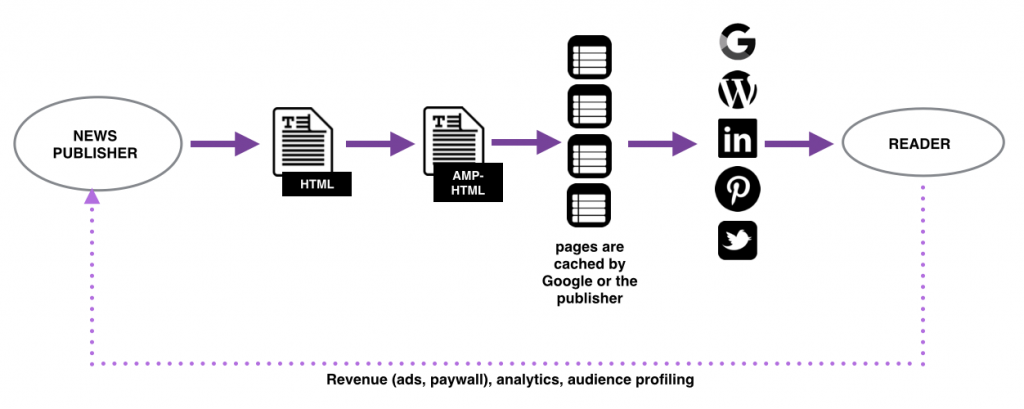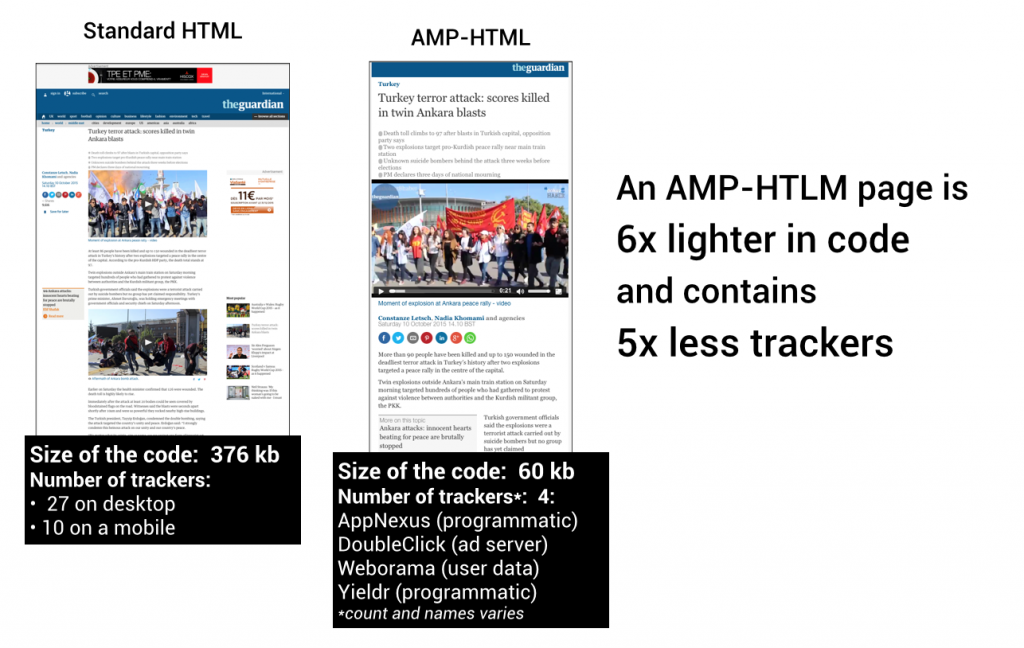Google’s Accelerated Mobile Page project is a game changer in the war with Facebook
On a smartphone, a single page can take many seconds to load. Multiple case studies show that people just walk away from a service that is too slow.
By contrast, AMP mobile pages load in a blink.
Compare these two pages from The Guardian (one of the most advanced media within the AMP Project.)
In the graphic below, the URL on the left is the standard mobile page, the right is the AMP version (simply add “/amp” at the end of any Guardian URL to get the accelerated version):
The loading time is reduced by up to 80%-90%.
“Amp-html” strips off most of the conventional web page payload and only keeps the HTML code directly involved in content rendering: text, images, videos gifs, basic ad formats and a few strictly mandatory trackers.
Everything else —javascripts, iframes, embeds, large chunks of the CSS etc.— known to slow down page downloads is shuttled to a separate “container”. As for ads, they load separately, usually one second after the editorial content. No more waiting for a promotional video to start playing.
To speed up access, the other trick is a massive caching process that looks like this:

Important: editorial content viewed from a social network or via a third party referrer will keep its economic attributes: Google does not take a cut on the ads sold by the publisher.
In practice, this entails the daunting task of connecting to the AMP ecosystem all the apparatus that comes with content publishing: ad servers, analytics such as Chartbeat (who is AMP’s founding analytic partner), ad networks, and also audience-profiling.
So while Instant Articles is part of Facebook’s walled garden, Google’s AMP is an open project: its specifications and code are publicly available on Github, the de rigueur open-code repository.
These publishers are already on board.
Automattic Inc. the privately-held company behind the WordPress blogging platform, is working on a dedicated AMP plug-in. This is an impactful move: WordPress powers 24% —or 60 million— of the world’s websites.
AMP is an important development in the battle between Facebook and Google.
Last Spring, Google was taken aback by Facebook’s Instant Articles announcement. (Instant Articles allows Smartphone users can read publishers posts on Facebook without leaving the app).
The staff in charge of media partnerships at Google was especially concerned about big names jumping on the Facebook bandwagon. Something needed to be done quickly to avoid letting the highly focused rival from Menlo Park take the media industry over, especially the often desperate legacy companies.
Want to try it?
Click on this link on your mobile and search for Obama. The New York Times and the Guardian links in the box show you how fast it is.
This is the link in full:
Posted in: Infographic of the day


